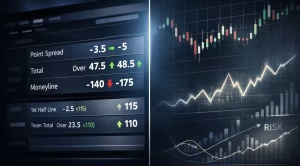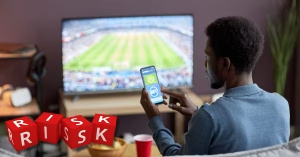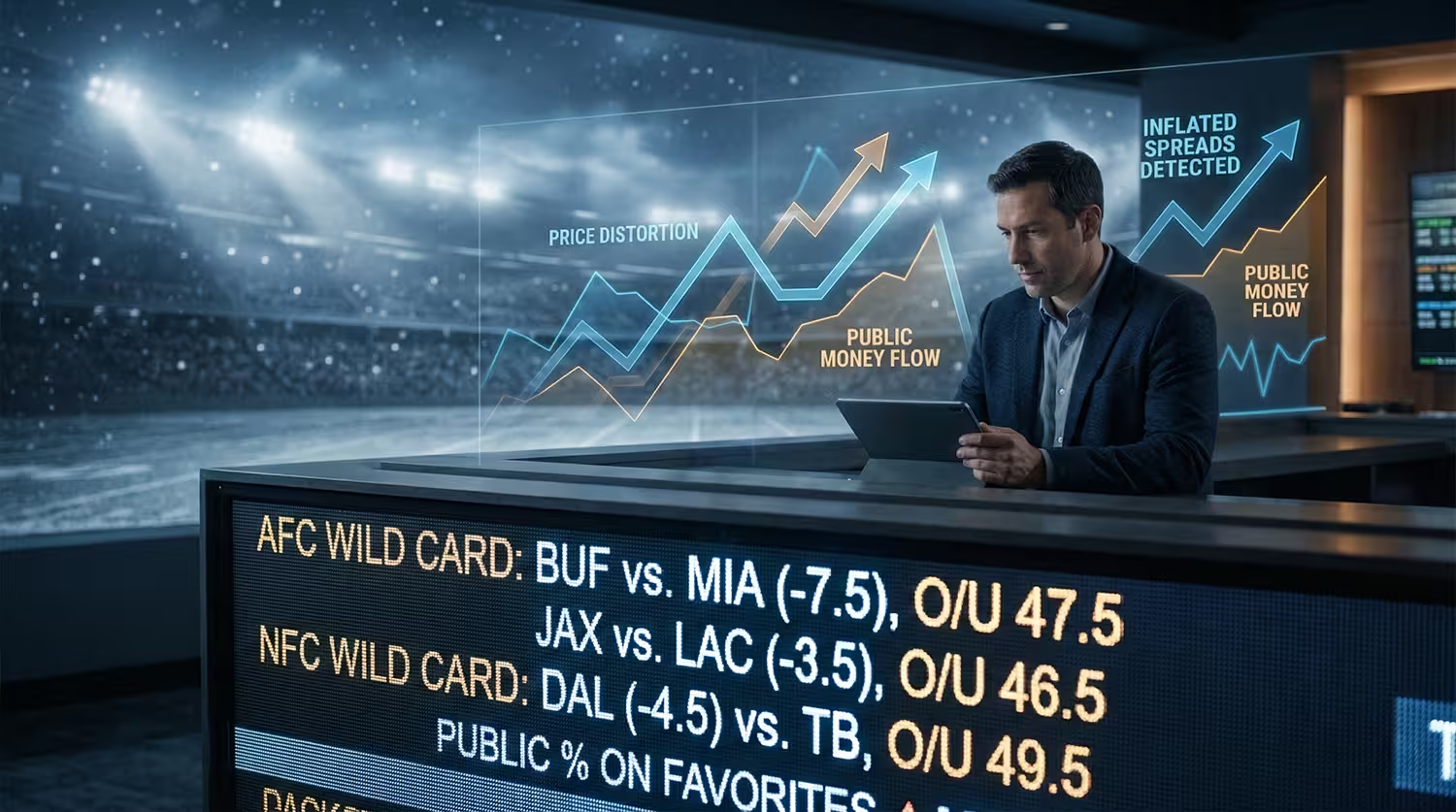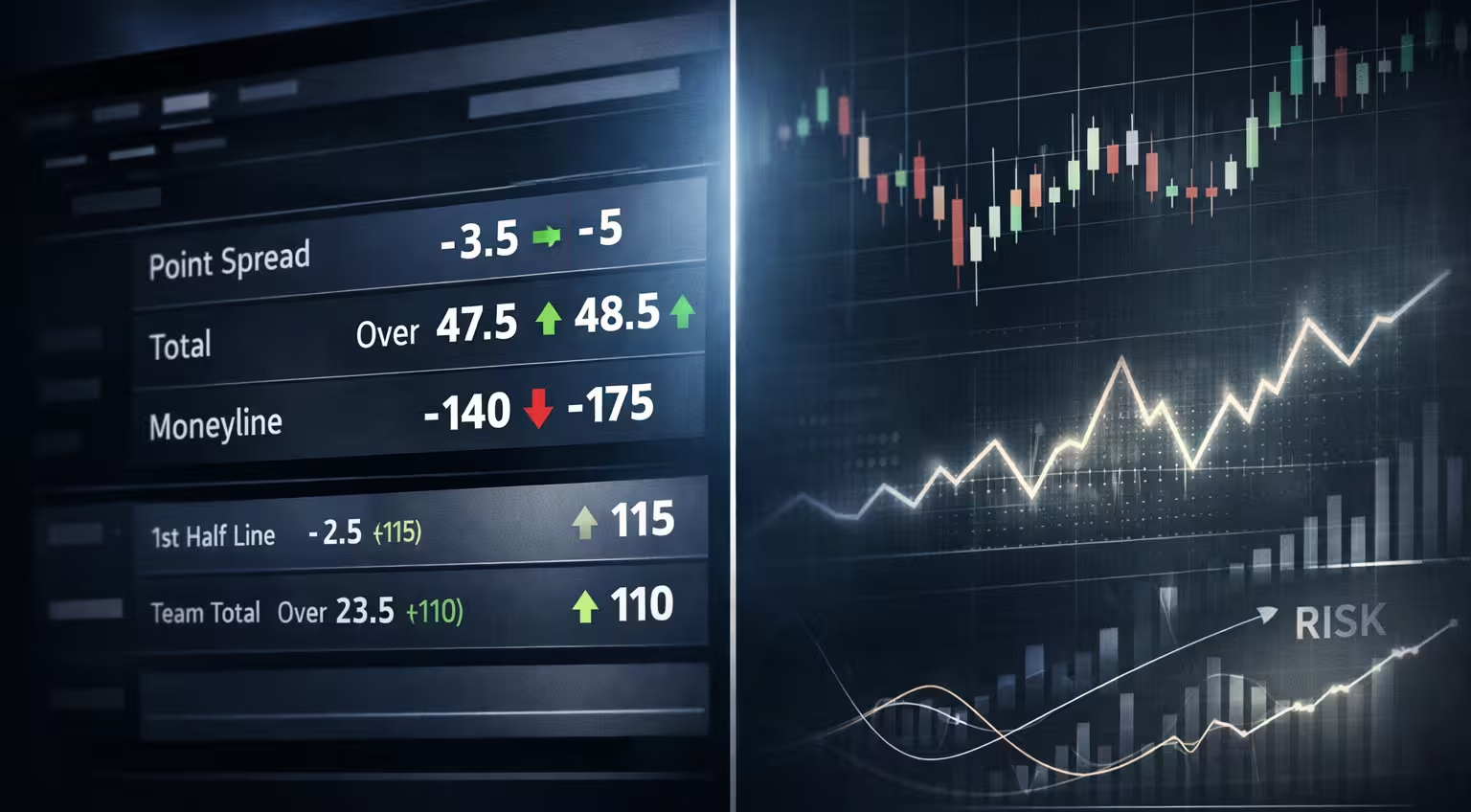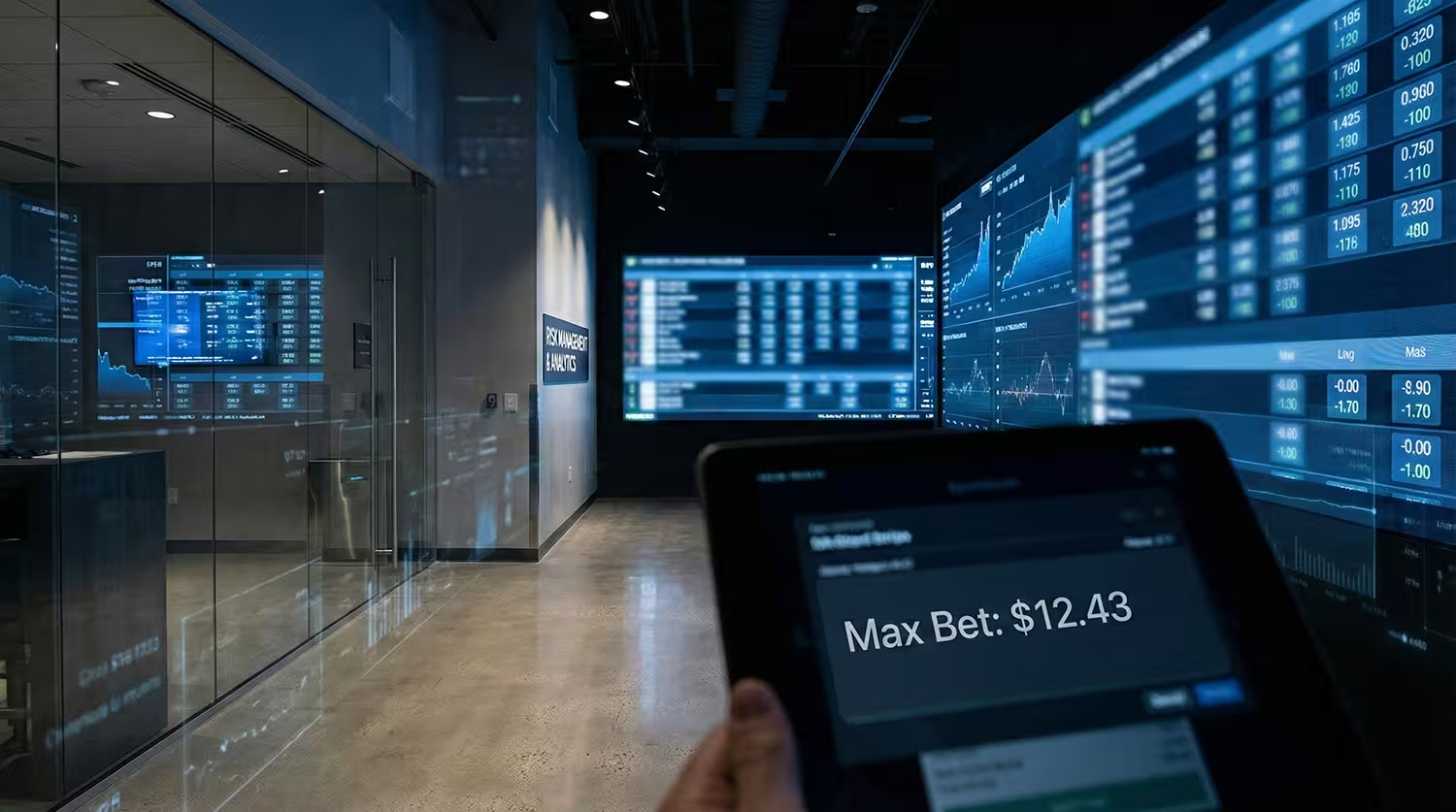How Cognitive Bias Affects Decision-Making in High-Stakes Gambling

High-stakes gambling could be compared to being put into a pressure cooker, although that’s being a tad over dramatic. But is it? Because there is a lot of money on the table, and every move you make can make or break your night. That’s literally when it’s called high-stakes gambling! And it isn’t just about the game you’re playing or the cards in your hand—you also have to know when to take a big chance and when to play it safe. Yet even the sharpest players will get tripped up by one slick opponent, and that is their own brain.
If you have ever been playing and are absolutely convinced that a losing streak has to come to an end or that a pattern will become apparent if you just hang in there and keep playing, that’s cognitive bias messing with your mind. These devilish mental shortcuts creep in, and they make you believe you’re truly making a good choice when, in reality, you’re relying on a hunch. And in high-stakes gambling, those sorts of hunches can cost you big money!
Are you asking yourself why exactly this matters? It’s a fair question! In high-stakes gambling, you need to keep your wits about you when the pressure is on. And even the most even-tempered and level-headed players are not immune to biases. You could be doubling down because you’re sure the odds will turn in your favor, or you’re seeing a pattern that isn’t actually there. Your brain is playing its own little game, and it doesn’t play fair.
These biases can turn a solid strategy into a one-way ticket to losing. You don’t just have to know the game you’re playing inside and out—you also have to understand how your own brain is working while you are playing! The more you’re aware of these mental tricks, the better chance you have at making decisions that actually make sense, not just the ones that feel right in the heat of the moment.
That’s why we are going to take a closer look at how exactly cognitive biases worm their way into decision-making in high-stakes gambling. We’ll explore why even the most experienced players will end up making impulsive calls and how those brain synapses firing off conflicting messages might be the reason. And at the end? You’ll know why keeping a clear head is just as important—if not more so—as knowing when to go all in!
What Is Cognitive Bias?
It’s when our cerebrum takes mental timesavers, causing us to make snap judgments that aren’t always super accurate or in our best interests. Think of it like this: it’s your brain’s way of taking a shortcut, but sometimes cutting corners results in misunderstandings. The biases tend to cloud our decisions, and they make us stick to beliefs or ideas even when there’s obvious evidence to the contrary. We aren’t being irrational on purpose! It is just how our brains operate so they can try to simplify the complicated things that are all around us.
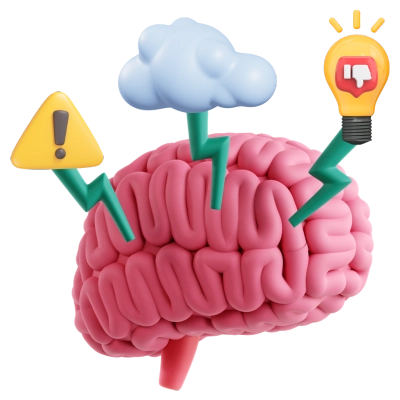
And why does this happen? Our brains are designed to be efficient, especially when they are under pressure. Instead of overloading us with too much info, they rely on quick, intuitive decisions—which are known as heuristics. The shortcuts do save time but can also cause us to make errors. In high-stakes scenarios such as gambling, where there’s a lot of stress and uncertainty, these mental habits go into overdrive. You could be feeling lucky, on a losing streak or be convinced a certain strategy will pay off because it worked once before. That’s how cognitive biases cause gamblers to make decisions that feel right in the moment but don’t actually make sense!
The following are examples of the most common biases that bubble up to the surface in gambling:
- Confirmation Bias: We tend to notice and remember information that confirms what we already believe, like thinking a slot machine will finally pay out because you’re “due for a win.”
- Gambler’s Fallacy: The classic belief that if something hasn’t happened in a while, it’s bound to happen soon. It’s why people bet on red after black has come up five times in a row.
- Overconfidence Bias: Overestimating your ability to predict outcomes or read situations, leading to bigger, riskier bets.
These types of mental habits can make even the most experienced players second-guess themselves or chase after unlikely outcomes.
Common Types of Cognitive Bias in High-Stakes Gambling
High-stakes gambling pressure is intense, the stakes are high, and the decisions are fast. Yet, even when there’s a solid strategy in place, gamblers can find themselves making irrational bets. Why? Like we said, our gray matter is wired to take the shortest route possible, and cognitive biases can cause expensive missteps. Knowing what the biases are and understanding how they work helps us see why even pro gamblers fall into patterns that make almost no sense and deplete their bankrolls. Below is a comprehensive explanation of each cognitive bias that plays a part in gambling behavior!
The gambler’s fallacy is the belief that if something hasn’t happened for a while, it’s bound to happen soon, or vice versa. This bias is rooted in a misunderstanding of how probability works. It’s like thinking that after flipping a coin and getting heads five times, tails just HAS to come up next. In reality, each flip is independent of the others, and the odds never change.
An example of this is a gambler at a roulette table who has been watching the ball land on black seven times in a row. Convinced that red is “due,” they put a large bet on red, even though each spin is a separate event, and the chances of landing on red or black stay the same.
How does it impact decision-making? You’d be surprised! This particular bias can rear its head and turn into the dangerous behavior known as “chasing losses.” Gamblers will keep betting more, convinced that their luck will change, but in games of chance, there’s no “balance” to even out. The belief that a losing streak has to end soon drives lots of gamblers to keep playing long past when they should have stopped, and it causes bigger and more irrational bets.
Why it happens is simple to explain—our brains love patterns. We like to think there’s order in the chaos, even when it’s total randomness. A need to find predictability is what drives the gambler’s fallacy. The irony is that the longer a streak lasts, the stronger the belief that it’s about to end, even though the math never backs it up.
Confirmation bias is when we seek out evidence that supports what we already believe and ignore anything that contradicts it. It’s like you have a case of tunnel vision, and you are only seeing what you want to see. In gambling, this can cause players to stick to strategies they “know” are successful, even when they’ve been proven wrong again and again.
Let’s say a poker player keeps betting on certain hands because they’ve won with them before. They remember the few times it worked out and ignore the countless other times they lost. A selective memory makes them overconfident in a strategy that isn’t based on fact.
The bias skews our judgment, and it makes it harder to calculate risks in a rational or accurate way. Gamblers end up holding onto these beliefs about certain games, strategies, or even “lucky” numbers because they concentrate only on the instances that confirm their beliefs while disregarding the ones that don’t. A distorted perception means gamblers will make super risky bets that are based more on superstition and not on logic.
Human brains do not like being wrong! We naturally look for info that backs up our current understanding and conveniently ignore things that might force us to rethink things, as it feels safer and more reassuring, but in gambling, it’s an equation for disaster.
Overconfidence bias is exactly what it sounds like, believing you’re better at something than you really are. And an inflated confidence in one’s skills, knowledge, or ability to predict outcomes is no bueno in gambling!
A sports bettor thinks they’ve cracked the code because they’ve won a few times, so they start placing bigger bets. They are confident they understand the teams, players, and conditions better than everyone else. But the problem is, their past wins could have been dumb luck, and without thorough research, this kind of confidence can result in huge losses.
Overconfidence can cause gamblers to take way bigger risks than they should, especially when they believe they have a special insight. This bias can also make people less willing to seek out new information or strategies, sticking instead to what they think they know best. It’s the classic “I know what I’m doing” attitude, which in gambling often leads to betting more than you can afford to lose.
It always feels good to be right! Our brains love that smug boost of confidence from thinking we’ve mastered a game or strategy, but this overestimation of our abilities blinds us to very real risks. It’s a really common trait, and it can be really costly in high-stakes scenarios.
Anchoring bias happens when people rely too much on the first piece of information they receive (the “anchor”) and use it to make all subsequent decisions. Once anchored, it’s tough to adjust your thinking, even if new information comes in.
Imagine a gambler who walks into a casino and decides to bet $50 because that’s what they did the last time. Even if they’re winning or losing, they keep sticking to that initial bet amount because it feels right, even when the situation calls for a different strategy.
Anchoring can prevent gamblers from adapting to any new info, as they get stuck on a number, a bet amount, or even a “lucky” machine and fail to adjust their strategy based on what’s happening. Rigid thinking equals poor betting choices that don’t match the reality of the game.
Anchors give us a starting point, something to cling to. Once we’ve set an anchor, our brains are reluctant to move away from it. It’s a mental shortcut that saves us the effort of reevaluating every time, but in gambling, it can lead to sticking with bets that aren’t paying off.
Loss aversion is the tendency to prefer avoiding losses over acquiring equivalent gains. In the simplest terms, the pain of losing $200 feels worse than the pleasure of winning $200, and this bias can drive gamblers to make decisions to avoid losses instead of maximizing gains.
After losing several hands, a poker player can get a little too cautious–they will fold even when the odds are in their favor. On the other hand, someone on a losing streak may start making bigger bets as they are trying desperately to win back what they’ve lost—a behavior known as “chasing losses.”
Loss aversion can lead to two extremes: overly cautious behavior, where gamblers miss out on potential gains, or reckless betting, where they throw good money after bad in an attempt to break even. Both behaviors stem from the fear of losing and can make rational decision-making incredibly difficult.
Losing feels awful, and our brains are wired to avoid it. But this fear can push gamblers into making decisions that are more about damage control than strategy. In high-stakes gambling, where emotions run high, this can quickly spiral out of control.
Understanding the above cognitive biases is an important way to be more mindful when you are gambling! If you know when your brain is trying to cut corners, you’ll be able to make clearer, more rational decisions. It doesn’t take the fun out of the game—you’re just playing smarter.
The Psychological Stress of High-Stakes Gambling
The psychological stress can be really intense, and it affects how gamblers think, react, and make decisions. The stress doesn’t just stem from financial concerns—it’s also linked to how our brains handle risk, uncertainty, and emotional highs. Below, we will break down how this stress manifests, especially when it’s put through an increased cognitive load and the added effects of emotional triggers.
Increased Cognitive Load
Gambling at a high-stakes level demands a lot from the brain. It’s like trying to solve a puzzle while a timer counts down, and every second costs money. The brain has to juggle multiple tasks at once: assessing risks, keeping track of patterns, calculating odds, and staying aware of opponents’ behaviors. All this mental juggling creates a heavy cognitive load, which can quickly lead to poor decisions.
Why Cognitive Load Matters
Think of cognitive load as the mental “bandwidth” you have to process information. In high-stakes gambling, this bandwidth gets eaten up fast. Gamblers are constantly under pressure to make quick decisions, and when that pressure builds, it can lead to something known as “decision fatigue.” This is when the brain, worn out by constant decision-making, starts cutting corners. Rather than carefully analyzing a situation, players might rely on gut feelings or habits, which can easily lead them astray.
For example, a poker player might begin a game sharp, reading their opponents and adjusting their strategies as the game progresses. But after hours at the table, that sharpness fades, and they start making choices they wouldn’t have made earlier. This is the toll of high cognitive load. It doesn’t just affect decision-making; it can also make players more susceptible to cognitive biases, like assuming a losing streak is bound to end soon (the gambler’s fallacy). The stress of needing to win can push gamblers to keep on betting, hoping for a turnaround, even when logic says it’s time to walk away.
As the mental load increases, so does the likelihood of making mistakes. A few poor decisions can lead to losses, which, in turn, raises the stakes and the stress. This creates a vicious cycle—bad choices lead to stress, which leads to more bad choices. Before long, players are not just battling the odds; they’re battling their own tired, stressed-out minds. And in a high-stakes environment, this cycle can escalate quickly.
Emotions are a big part of why people gamble. The thrill, the fear, the hope, the frustration—each of these feelings can drive decision-making, especially when money is on the line. But emotions can also cloud judgment, making it harder to think clearly, especially under pressure. High-stakes gambling can heighten these emotions, leading to decisions that are more reactive than rational.
One of the most powerful emotions in gambling is fear. Fear of losing, fear of making a wrong move, and sometimes even fear of missing out on a big win. This anxiety can make gamblers overly cautious, prompting them to make defensive bets that don’t make strategic sense. For instance, a player might fold a strong hand simply because they’re too nervous to risk more chips, even if the odds are in their favor. Fear also feeds into another dangerous behavior: chasing losses. When players are losing, fear can make them desperate to recover what they’ve lost, pushing them to take risks they wouldn’t normally consider. It’s not about making smart plays anymore; it’s about trying to get back to even, and that desperation can be costly.
Winning triggers a rush of euphoria. This isn’t just any feeling; it’s a biological response. Winning releases dopamine, the brain’s “feel-good” chemical, which creates a sense of pleasure and reward. It’s similar to the effect of certain addictive substances, and that’s part of why gambling can be so alluring. The more a person wins, the more they crave that dopamine rush, and they might start taking bigger risks to feel that high again. But this euphoria can be deceptive. It can make players feel invincible, leading to overconfidence. After a few wins, they might start betting larger amounts, convinced they’re on a streak. This mindset is dangerous because it ignores the reality that luck is unpredictable. In pursuit of the thrill, gamblers may end up placing reckless bets that drain their winnings faster than they accumulate them.
High-stakes gambling often brings out greed and overconfidence. Winning big can make a player feel like they have a special edge or insight, even if they don’t. This overconfidence can lead to larger, riskier bets based on a false sense of control. For example, a sports bettor might start placing hefty bets on less familiar games, convinced that their past wins mean they’ve “figured it out.” But without careful analysis, these bets are just as likely to lead to losses.
Constantly cycling between hope, excitement, fear, and frustration can be draining. After a while, gamblers may find themselves emotionally exhausted, which can lead to rash decisions. When the brain is tired, acting on impulse rather than rational thought is easier. This is when players might throw caution to the wind, betting all they have left on a single spin or hand, hoping for a miracle. Emotional exhaustion pushes them into desperation mode, where good judgment is a distant memory.
Why Emotions Matter
Emotions are a natural part of gambling, and they can add to the excitement. But in high-stakes situations, where every decision can have a big impact, letting emotions take the lead is risky. When emotions like fear or greed cloud judgment, players might ignore the facts, overlook warning signs, and make choices they wouldn’t make with a clear head. Understanding how emotions drive decision-making can help players recognize when their feelings are leading them astray, giving them a chance to take a break and reassess the situation.
How Cognitive Biases Can Lead to Financial Losses
Gambling comes with risks heightened by how our minds work, which can result in a snowball effect, where one bad decision cascades into many, resulting in larger losses than intended. Let’s take a look at just how these biases can create a chain reaction of poor choices, and then we’ll walk through an example to see how it can unfold in the real world!
Compounding Mistakes
Biases don’t only cause isolated mistakes—they have a way of building on each other, turning minor errors into bigger problems. This compounding effect is particularly visible in gambling, where small lapses in judgment can quickly escalate. Here’s how it happens:

Chasing Losses
One of the classic behaviors linked to cognitive bias is “chasing losses.” This is when a gambler, frustrated by losing, starts placing larger bets to try to win back what they’ve lost. It sounds logical at first—get back to where you started—but it’s usually driven more by emotion than sound strategy. What starts as a few missteps turns into a cycle where each new bet is a desperate attempt to make up for the previous one, leading to mounting losses.
Biases like loss aversion drive this behavior. Gamblers tend to feel the pain of losing more acutely than the pleasure of winning, making them desperate to erase the losses. However, instead of walking away, they double down, convinced that a win is just around the corner. This is where the gambler’s fallacy kicks in—the mistaken belief that, after a streak of losses, a win is “due.” In reality, every spin, card, or roll of the dice is an independent event unaffected by what came before.
The Sunk Cost Trap
Another bias that plays a role here is the sunk cost fallacy. Once someone has put a lot of money on the line, they feel compelled to keep going to justify what they’ve already spent. It’s as if walking away would mean accepting defeat, so they stay in the game, even when they know the odds are against them. This keeps gamblers locked in, chasing an elusive win that might never come. It’s a recipe for compounding mistakes, as each new bet isn’t just about the potential to win but about recovering everything that’s already been lost.
The real problem is that these biases don’t operate in isolation. After a string of losses, stress levels rise, clouding judgment. The more stressed and desperate gamblers get, the more they rely on quick, gut-based decisions rather than stepping back to think things through. This is how minor misjudgments snowball, turning what could have been a small loss into a full-blown financial crisis.
A Gambler’s Downward Spiral
Let’s put this into perspective with a real-world example! A gambler walks into a casino on a Friday night, feeling confident. Maybe they’ve had a good week at work and are ready to relax by playing a few rounds at the poker table. The night starts off well—they win a few hands, and their stack of chips grows. But then, things go sideways.
A couple of bad hands later, they’ve lost some of those winnings, and instead of taking it in stride, they convince themselves that they’ve just hit a rough patch. The belief that their luck will turn around kicks in, fueled by a combo of the gambler’s fallacy and overconfidence. They raise their bets, telling themselves that a big win is a few hands away, just waiting to make up for those earlier losses.
But it doesn’t happen. The cards aren’t in their favor, and the stack of chips that felt promising at the beginning of the night is shrinking fast. Instead of cutting their losses and walking away, they fall into the sunk-cost trap. They think, “I’ve already lost this much, so I might as well keep playing until I win it back.” This flawed logic is why so many gamblers find themselves doubling down, betting more than they planned, hoping to break even.
As the night drags on, frustration and anxiety ramp up–the gambler starts chasing those losses more aggressively, betting on hands they would normally avoid and take risks they wouldn’t consider if they were thinking clearly. The stress makes them more impulsive, and their resolve to “turn things around” grows stronger with every loss. By the end of the night, they’d lost much more than they intended, all because they couldn’t walk away and see how the biases were driving their decisions.
In the above example, there are multiple biases are at play. The gambler’s fallacy made them believe a win was inevitable after a losing streak, while overconfidence led them to overestimate their chances of success. The sunk cost fallacy kept them locked in, trying to recover what they’d already lost. Stress and desperation only fueled these biases, making them more likely to make rash decisions. The end result? A cascade of poor choices that led to a deeper financial hole than they could have imagined.
Understanding these biases is a must for anyone who gambles, whether it’s casually or regularly. Awareness is the first line of defense against letting these cognitive habits take control. When gamblers recognize how biases like loss aversion, overconfidence, and the sunk cost fallacy operate, they can make more conscious decisions and stop before things get out of hand.
Breaking the cycle isn’t easy, especially when stress and emotions are running high, but it starts with understanding how our brains can trick us into compounding small mistakes into bigger losses. The goal isn’t to strip away the fun of gambling but to make sure it doesn’t lead to decisions you’ll regret later.
Strategies to Minimize the Impact of Cognitive Biases
Fortunately, gamblers can use some tried-and-tested strategies to control their biases and make more rational decisions. Below are the main approaches: self-awareness, setting limits, relying on facts, and taking breaks.
Self-Awareness
Being mindful of your own thought patterns is the first step in combating cognitive biases. It’s easy to think, “I’ve got this,” but even seasoned gamblers can fall into traps set by their own minds. Developing self-awareness means taking a moment to ask, “Why am I making this bet? Is it based on solid reasoning, or am I just going with a gut feeling because I’m on a streak?”
Self-awareness acts like a mental filter. When you actively question your decisions, you’re more likely to spot when a bias is leading you astray. For example, you might catch yourself thinking, “I’ve lost five times in a row, so I’m bound to win soon.” Realizing that this is the gambler’s fallacy can help you avoid placing a reckless bet just to chase a win that’s not guaranteed. The goal is to slow down and recognize when your thinking is being influenced by patterns that don’t hold up to reality.
Before starting a gambling session, take a moment to reflect on your intentions. Are you here for fun or trying to win back the money you lost earlier? During the game, check in with yourself regularly. If you notice that your emotions are driving your decisions, it might be time to pause and recalibrate. It’s not about shutting off emotions but being aware of how they’re influencing your choices. This kind of mindfulness helps gamblers make more deliberate decisions rather than reactive ones.
Setting Limits
Setting clear limits on both time and money can create a boundary that prevents gambling from spiraling out of control. Limits act as guardrails, ensuring that emotions or momentary impulses don’t take over.
When there’s a plan in place, it’s easier to walk away. Setting financial limits prevents the all-too-common scenario of chasing losses. If you set a budget of $150 for the night, you’re done once that money is gone. This will stop the temptation to dig deeper into your wallet in its tracks after a losing streak, which is when cognitive biases like loss aversion and the sunk cost fallacy can really take hold. Time limits work in a similar way—if you know you’re only going to play for two hours, it’s easier to step back instead of getting caught up in the moment and losing track of time.
Decide on your budget and time limits before you start gambling, and stick to them no matter what. It can help to set reminders on your phone or even have a friend who can check in with you. Some casinos and online platforms also have tools that allow you to set spending limits or time restrictions, and it’s well worth taking advantage of these features.
Fact-Based Decision-Making
While there’s always an element of chance in gambling, relying on data and probabilities instead of emotions can make a huge difference. Many cognitive biases stem from gut feelings or assumptions, like thinking a slot machine is “due” for a win just because it hasn’t paid out in a while. Sticking to the facts keeps these biases at bay.
Decisions based on facts and probabilities are less likely to be swayed by the moment’s thrill or disappointment. For instance, understanding the odds of a game can help you recognize when a bet is risky rather than going on a hunch. When you rely on real information, you’re less likely to fall into the trap of overconfidence or let previous wins give you a false sense of security.
Learn the odds of the games you play. If you’re into poker, understand the probabilities of different hands. If you bet on sports, take the time to research teams, players, and stats rather than just betting on your favorite team. When you ground your decisions in data, you’re less likely to be misled by biases that can cloud your judgment.
Taking Breaks
In the heat of the moment, it’s super easy (and normal) to make snap decisions that you might regret later. Taking regular breaks during a gambling session can help clear your mind and reset your focus.
Gambling can be mentally exhausting. When your mind is tired, it’s more prone to biases, like the sunk cost fallacy, where you keep throwing money into the pot just because you’ve already invested so much. Regular breaks give you a chance to step back and think clearly about your next move. They can also help you check in with yourself emotionally—are you still playing because you’re enjoying the game, or are you trying to win back money you’ve lost?
Decide on a schedule for breaks before you start playing. For example, you might choose to step away from the table or screen every 30 minutes. Use this time to stretch, grab a drink, or chat with a friend. The idea is to step away from the pressure of the game, even if just for a few minutes so that you can go back with a clearer head. This can help you avoid rash decisions driven by stress or excitement.
Combating cognitive biases in gambling isn’t about shutting down emotions entirely or taking away the fun. It’s about finding balance. Self-awareness, setting firm limits, relying on data, and taking regular breaks can all help gamblers make more thoughtful, rational decisions. Recognizing how biases affect behavior is the first step toward responsible gambling so it keeps being fun without leading to unnecessary financial strain.
Concluding Thoughts
We aren’t telling you to not trust your own brain, but we aren’t not not telling you to when it pertains to gambling. Our gray matter can make us act up in ways we wouldn’t under ordinary circumstances—and high-stakes gambling is going to have you firing on all synapses, but not in a good way. Just be aware that your cerebrum might not be your best ally at the casino or playing on gambling sites, and question your actions!
Look below for a quick recap of what cognitive biases are and how they factor into how we gamble!
- Cognitive biases, like the gambler’s fallacy, overconfidence, and the sunk cost trap, can trip up even the best-laid plans. They make it simple to fall into patterns of chasing losses or making bets on a whim, meaning you could make decisions that you could regret later on.
- These biases don’t happen in isolation—they build on each other, creating a cycle where one poor decision sets off a chain reaction. When emotions are high, it’s super easy to lose sight of the big picture and keep betting, thinking you can turn things around.
- The good news is that there are ways you can push back! By being self-aware, setting firm limits on your spending and time, relying on data instead of your gut feelings, and taking regular breaks to clear your head can make a real difference in how you play.
Gambling is a great way to unwind, but don’t get so relaxed that you forget what’s at stake. Winning feels amazing, and we totally understand that you can get swept up in the moment. The sweet rush of a win—or the pain of a loss—can muddle your thinking, which makes it so much harder to make good choices. But if you know how biases can creep in, you can stay one step ahead of your brain. Play with a level head, set your boundaries, and don’t let the game dictate your actions. After all, gambling is supposed to be fun!
If you want to get a better grip on how your mind works when you’re at the tables or betting online, you should check out our resources on gambling psychology and responsible gaming! We have tons of insights, practical tips, and strategies that will help you stay in control, play smarter, and keep gambling what it’s meant to be—enjoyable.

Alyssa contributes sportsbook/online casino reviews, but she also stays on top of any industry news, precisely that of the sports betting market. She’s been an avid sports bettor for many years and has experienced success in growing her bankroll by striking when the iron was hot. In particular, she loves betting on football and basketball at the professional and college levels.

